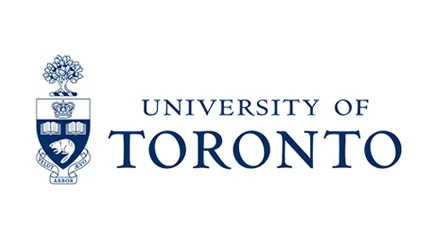All You Need to Know About A Cracked Tooth in 2022
A cracked or fractured tooth, also referred to as cracked tooth syndrome (CTS), severely affects your oral health and should be treated in the initial stages. It simply happens when cracks or fractures appear in your tooth, which causes your tooth to break or split. If cracks stay untreated for longer periods, they can lead to severe dental conditions, including:
- Death of nerves
- Growth of abscess
- Infection of the pulp
- Sensitivity to temperature extremes
Therefore, treating the fractured tooth in the early stages is necessary to minimise the risks of extreme dental complications and to save the form and function of the original teeth.
If a fracture extends into the innermost layer of teeth, the pulp, it can be treated with a root canal procedure, and crowns can be placed over the fractured teeth to prevent further damage. However, if the crack exceeds the gum line, it no longer remains treatable and will be extracted in order to protect the adjacent teeth.
FACTORS THAT LEAD TO CRACKED TOOTH:
Various factors become a reason for cracked or fractured teeth, which adversely influence their functionality. Poor oral hygiene is among the most common factors that lead to fractured teeth. Some other factors also play a role in causing CTS, including:
- Consistent pressure on the tooth due to teeth grinding.
- Large dental fillings that damage the tooth’s structural strength.
- Chewing on hard food items.
- Sudden temperature shifts, such as eating really hot and cold foods simultaneously.
- Ageing.
- Trauma or injuries.
COMMON SYMPTOMS OF CRACKED OR FRACTURED TEETH
Cracked or fractured teeth do not usually show any symptoms. However, in some cases, when the cracks remain in your teeth for extended periods, they can cause discomfort while chewing or biting.
Cracked teeth sometimes also show symptoms like:
- Sensitivity to temperature extremes.
- Persistent or short-term pain in the affected area.
- Swollen gums around the damaged or cracked tooth.
- Presence of sharp tooth edges.
DIAGNOSIS FOR FRACTURED TEETH
When diagnosing fractured or cracked teeth, dentists usually examine your gums to know the presence of inflammation. They also pass light through your tooth to illuminate the fracture.
Dentists also put a staining dye on your tooth to make the tooth crack visible. Then they take an X-ray of your teeth to see fractures and related issues, such as nerve damage or bone loss.
Dentists also use special tools or pointed instruments called dental explorers to locate fractures or cracks in our teeth. It is really necessary to assess the severity of tooth cracks so that dentists can provide treatment accordingly.
HOW TO TREAT A CRACKED TOOTH?
A cracked tooth can be treated at home if it is minor and has no extreme symptoms. However, if a fracture exceeds the pulp, it requires immediate professional help in order to prevent severe oral issues.
The dentists treat tooth cracks depending on their severity and offer various treatments, including:
1. DENTAL CROWNS
Fractured or cracked teeth can be repaired by placing dental crowns over them. Crowns cover the visible part of teeth over the gums and protect them from further damage and plaque build-up.
Moreover, crowns blend with your natural teeth and enhance dental aesthetics. The placement of dental crowns is a non-invasive and widely preferred procedure to restore the form and function of the damaged tooth.
2. DENTAL VENEERS
The placement of dental veneers is a restorative dental procedure that can effectively treat chipped, cracked or broken teeth. Veneers are bonded to the tooth’s surface with the help of adhesives, and they become a part of the tooth structure. They strengthen the functionality of fractured and cracked teeth and give them a natural-looking appearance.
3. ROOT CANAL TREATMENT
If a crack has reached the innermost layer of teeth, the pulp, it can also be treated with the root canal procedure. In root canal therapy, the infected tooth roots are extracted, and the original teeth are saved from further deterioration.
PREVENTIVE MEASURES AFTER GETTING A FRACTURED TOOTH REPAIRED
After getting treatment for a fractured tooth, people must follow some preventive care steps to prevent any further damage, like:
- Practice good oral hygiene.
- Use a saltwater rinse to keep the mouth clean.
- Use mouthguards while playing sports.
- Visit the dentist after regular intervals to get your teeth examined.
FAQs:
CAN FRACTURED TEETH RESULT IN HEALTH ISSUES?
If a cracked tooth is left untreated for extended periods, it can cause serious oral health complications, making teeth susceptible to infection and decay. Therefore it is necessary to seek professional dental help in the initiation to stop the cracks from getting worse and to restore their functionality.
HOW LONG CAN CRACKED TEETH REMAIN UNTREATED?
The cracked teeth should not be left untreated for more than two weeks after the incident. You must immediately seek professional help and get your fractured or cracked tooth treated to minimise the risks of infection or tooth extraction.











